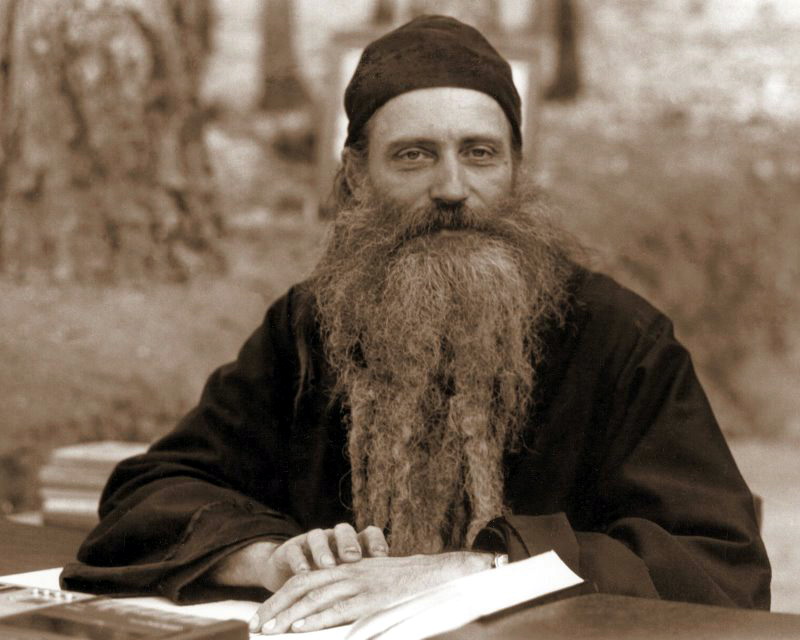
Once the Elder was invited on board a frigate that had come from St. Petersburg. The captain of the frigate was a man quite learned, highly educated; he had been sent to America by Imperial command to inspect all the colonies. With the captain were some 25 officers, likewise educated men. In this company there sat a desert-dwelling monk of small stature, in an old garment, who by his wise conversation brought all his listeners to such a state that they did not know how to answer him. The captain himself related: "We were speechless fools before him!"
Father Herman gave them all one common question: "What do you, gentlemen, love above all, and what would each of you wish for his happiness?" Diverse answers followed. One desired wealth, one glory, one a beautiful wife, one a fine ship which he should command, and so on in this fashion. "Is it not true," said Father Herman at this, "that all your various desires can be reduced to one - that each of you desires that which, in his understanding, he considers best and most worthy of love?" "Yes, it is so," they all replied. "Well, then, tell me," he continued, "can there be anything better, higher above everything, more surpassing everything and in general more worthy of love, than our Lord Jesus Christ Himself, who created us, perfectly adorned us, gave life to all, supports all, nourishes and loves all, who Himself is love and more excellent than all men? Should not a person then love God high above all and desire and seek Him more than all else?" All began to say: "Well, yes! That is understood! That speaks for itself!"
"And do you love God?" the Elder then asked. All replied: "Of course, we love God. How can one not love God?" "And I, sinful one, for more than forty years have been striving to love God, and cannot say that I perfectly love Him," answered Father Herman; then he began to show how a person should love God. "If we love someone," he said, "we always think of him, strive to please him, day and night our heart is occupied with this subject. Is it thus that you, gentlemen, love God? Do you often turn to Him, do you always think of Him, do you always pray to Him, and fulfill His holy commandments?" It had to be acknowledged that they did not! "For our good, for our happiness," concluded the Elder, "at least let us make a promise to ourselves, that from this day, from this hour, from this very moment we shall strive to love God above all, and fulfill His holy will!"
Behold what an intelligent, superb conversation Father Herman conducted in society; without doubt this conversation must have imprinted itself on the hearts of his listeners for their whole life!
http://agapienxristou.blogspot.ca/2013/07/saint-herman-of-alaska-on-love-for-god.html












